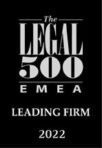News
Applying for state aid during COVID19 crisis in Baltics | Newsletter #12 2020
COVID-19 has put almost every undertaking around the world facing an unexpected crisis of a significant scale, the duration, impacts and consequences of which are still unknown. To help companies (and thus the economy of the European Union as a whole) survive difficult times and avoid mass bankruptcies, the European Commission adopted on 19 March 2020 a Temporary Framework for State aid measures to support the economy in the current COVID-19 outbreak. In a nutshell, the initial framework provides for five different types of state aid: (i) direct grants, repayable advances or tax advantages; (ii) guarantees on loans; (iii) subsidised interest rates for loans; (iv) guarantees and loans channeled through Credit institutions or other financial institutions; and (v) Short-term export credit insurance. Since its adoption, the framework has been amended several times, including a number of additional measures – wage subsidies, funding for COVID-19-related research, deferral of tax debt, recapitalization measures, subsidy for fixed costs, to name a few. Like other EU Member States, all Baltic States have adopted exceptional state aid packages under the framework to help struggling undertakings, employees and households facing economic difficulties due to the COVID-19 outbreak.
Estonian support measures – ask the bank, KredEx or the Rural Development Foundation for help
Perhaps the most extensive state aid measures the undertakings have the right to apply for, are loan guarantees, investment loan, working capital loan and land capital support (for owners of agricultural land for sale-and-leaseback transactions). In general, all measures can be applied for either directly through the Rural Development Foundation (agricultural holdings) or through a bank and/or eKredEx (all others).
As for the loan guarantees, the loan applicant must be a sustainable and solvent Estonian company which was not in difficulty as of 31.12.2019 and has no overdue debts (excl. the deferred ones) to the Tax and Custom Board or credit institutions, which have incurred before 01.01.2020.
Nor may the company be the subject of bankruptcy or liquidation proceedings. As for the extent of a guarantee, Both KredEx and Rural Development Foundation are ready to secure a maximum of 90% of the loan or lease amount (for a proportional guarantee), or up to 35% of the loan or lease amount (for a fixed guarantee), with an interest rate of up to 8% per annum. As a general rule, the maximum guarantees are limited to an amount not exceeding double the salary cost of the
entrepreneur for 2019 or 25% of the entrepreneur’s turnover in 2019. Nevertheless, if justified (especially for SMEs), this amount can be increased. It should be borne in mind that there are many exceptions – for example, KredEx is ready to guarantee loans in the accommodation, catering and tourism sectors in full. Applying for a loan guarantee is usually done through a bank.
The intended purpose of the extraordinary investment loan is to finance investments in fixed assets, to overcome the temporary difficulties of an entrepreneur caused by the outbreak of COVID-19. As the Rural Development Foundation will no longer issue loans due to the exhaustion of funds, the following will focus only on the requirements of KredEx. The general requirements for obtaining an extraordinary investment loan are much higher than for a guarantee, including: from 12 March 2020, the applicant has not paid dividends or made other equity- reducing payments to the owners; the applicant does not have valid payment defaults and there were no payment defaults of more than EUR 640 in the period from 01.04.2019 to 01.03.2020 and outstanding tax debts of more than EUR 640 as of the first date of each month. The applicant must also substantiate the link between the need for the loan and the COVID-19 crisis and provide an action plan to overcome the difficulties and repay the loan obligations. The applicant’s financial indicators must also meet certain conditions. The loan period is 24 to 72 months and the amount of the loan is once again set to depend on the company’s 2019 salary costs and turnover.
Kredex also provides extraordinary working capital loans up to 10 million euros per applicant for a loan and a group of enterprises related to the applicant. General requirements for the loan applicant and its financial indicators are the same as for the investment loan. The loan period is up to 24 months and,
similarly to an extraordinary investment loan, it must be applied for directly through KredEx.
It is also important to pay attention to the fact that an undertaking operating in the tobacco, alcohol, arms or casino business is not entitled to an extraordinary guarantee/loan. Certain restrictions also apply to the IT sector.
Latvia – extensive tax holidays, working capital loans and loan holidays guarantees
While Estonian state aid is largely related to extraordinary guarantees and loans, the Latvian COVID-19 state aid package in addition to allowance for idle time, working capital loans and grants as well as loan holidays guarantees etc., includes also various tax holidays.
A taxpayer who has been affected by the COVID-19, has the right to apply until 30.06.2021. for an extension of the time limit for the payment of taxes up to 3 years.
From the 1st January, a payer of personal income tax shall not make the advance payments of personal income tax for the income from economic activity for the taxation year 2020. This type of assistance is applied automatically, but the payer of personal income tax may choose to pay it on a voluntary basis.
Local governments of Latvia have the right to determine other time limits for the payment of the immovable property tax in 2020 which are different from the time limits determined by law.
Working capital loan is liquidity support for businesses, farmers and those in the fisheries industry, whose activities have been affected by Covid-19. The maximum amount of loans for one enterprise and a group of persons linked thereto shall be up to EUR 1 000 000. The enterprise may receive several loans if at the moment of granting of the loan the total amount of the loans to be granted and outstanding amount of the loans received previously does not exceed the maximum amount of loans. Loans to enterprises are granted by the Development Financial Institution Altum. Similar to Estonia, it shall be proved in the application that the enterprise is economically viable and the loan for current assets is necessary in order to reduce the effects of COVID-19 on its economic activity.
For companies that have experienced objective difficulties in making loan repayments to banks due to the Covid-19 crisis, it is offered to apply for a credit guarantee that will allow the bank to defer payment of the principal amount. The amount of the financial service covered by the guarantee shall not exceed 25% of the business’ total turnover in 2019, but themaximum amount of the guarantee shall not exceed EUR 5 million. The guarantee covers up to 50% of the amount of the financial service (at the moment the guarantee is granted). Maturity of the guarantee is up to 6 years for financial leasing and investment loans, up to 3 years for working capital financial services.
Lithuania – crowdfunding loans and interest compensation
Lithuanian state aid measures differ significantly from both Latvian and Estonian measures – namely, the SMEs can receive loans under crowdfunding “Aviete”. However, companies threatened with insolvency cannot be financed through this measure, nor can the loan be used to finance low-rated business projects or to refinance other loans (this condition is inherent in all state aid measures in Latvia, Lithuania and Estonia). If the loan application is submitted before 31.12.2020, the maximum loan period is 12 months. From 2021, loans can be taken for up to three years.
SMEs that have a valid loan (investment, leasing) may also apply for interest compensation of up to 95% for maximum period of 36 months. The compensation, however, shall not be provided, inter alia, if the funds of the loan are intended for the acquisition of non-commercial vehicle(s) (except if the applicant carries on the business of car leasing, transport, ride-sharing or driving school); shares; or bonds. The excemptions are also related to the company’s field of activity – companies engaged in forestry, fishing, gambling, and betting cannot apply for interest exemption.
In some cases, SMEs may receive interest compensation of up to 100%. To this end, the SME must have a valid loan agreement (investment loan / finance lease/ revolving loan), the fulfilment of the obligations arising from which has been postponed within the period from 16.03.2020 until 31.12.2020. Also, the company’s financial position must be sustainable in the long run and the interest rate should not be raised during the loan payment postponement period. As in the previous example, the initial loan may not be used to (re) finance other liabilities. Companies engaged in forestry, fishing, gambling, and betting cannot apply for interest exemption.
All Lithuanian measures are applicable only until the end of this calendar year.
Newsletter written by:
Marko Pilv
Katarina Talumäe
Kārlis Vītols
Tomas Mickus
Categories
Subscribe to Leadell's Newsletter







